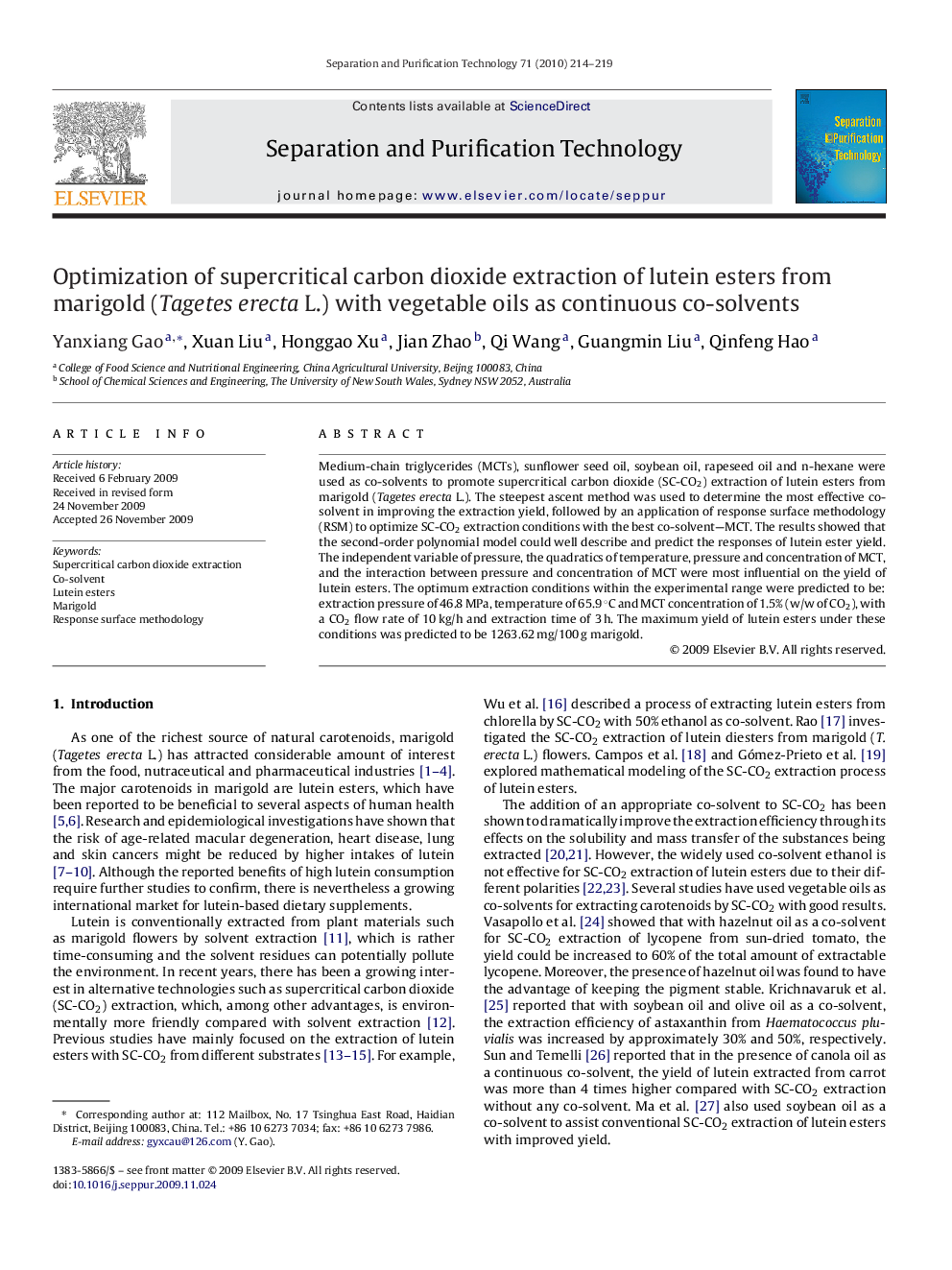| Article ID | Journal | Published Year | Pages | File Type |
|---|---|---|---|---|
| 643027 | Separation and Purification Technology | 2010 | 6 Pages |
Medium-chain triglycerides (MCTs), sunflower seed oil, soybean oil, rapeseed oil and n-hexane were used as co-solvents to promote supercritical carbon dioxide (SC-CO2) extraction of lutein esters from marigold (Tagetes erecta L.). The steepest ascent method was used to determine the most effective co-solvent in improving the extraction yield, followed by an application of response surface methodology (RSM) to optimize SC-CO2 extraction conditions with the best co-solvent—MCT. The results showed that the second-order polynomial model could well describe and predict the responses of lutein ester yield. The independent variable of pressure, the quadratics of temperature, pressure and concentration of MCT, and the interaction between pressure and concentration of MCT were most influential on the yield of lutein esters. The optimum extraction conditions within the experimental range were predicted to be: extraction pressure of 46.8 MPa, temperature of 65.9 °C and MCT concentration of 1.5% (w/w of CO2), with a CO2 flow rate of 10 kg/h and extraction time of 3 h. The maximum yield of lutein esters under these conditions was predicted to be 1263.62 mg/100 g marigold.
